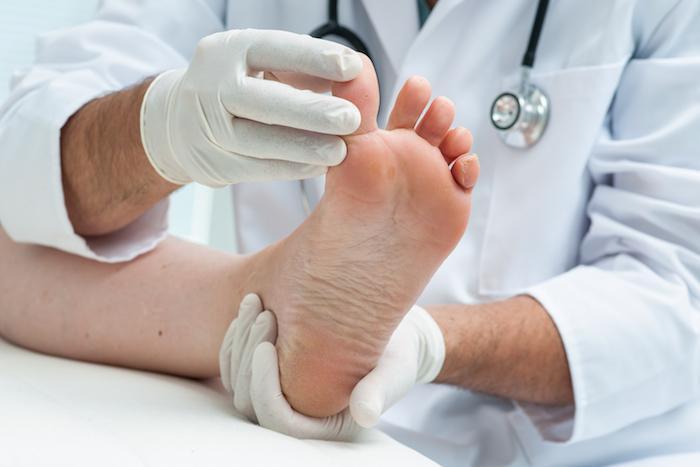Gout is a form of arthritis that affects joints, often in the big toes. And when it comes to gout attacks, food can have a lot to do with them.
The good news is you can reduce your chances of experiencing attacks by avoiding certain foods. In this blog, the providers at Great Lakes Foot and Ankle Institute explain how diet can affect gout.
What is gout?
Gout is a form of arthritis that can cause pain, swelling, redness, and tenderness in joints, and it often affects the big toes. The reason gout develops is because of a buildup of uric acid in the blood.
Your body produces uric acid when it breaks down substances called purines, which are produced by your body and are also found in certain foods. Your body normally filters out the uric acid, but your body may have trouble doing so if you have too much of it.
This buildup of uric acid can lead to the formation of urate crystals, and these crystals can find their way into your joints, which can cause painful symptoms.
What are the symptoms of gout?
Gout tends to come and go, and it’s fairly common for symptoms to wake up those who suffer from it. Although gout most often affects the joints of the big toe, it can affect other joints as well, including the wrists, ankles, knees, and elbows. The pain is often the most intense in the first 4-12 hours of a gout attack.
As mentioned earlier, other symptoms can include swelling, inflammation, redness, and swelling. After the initial pain fades, it’s common to feel lingering joint discomfort. This discomfort can last for a few days to a few weeks.
How does diet affect gout?
Eating foods that contain a lot of purines will force your body to break them down into uric acid, which can then increase your chances of suffering gout attacks. To decrease your intake of foods that have a lot of purines, you should limit your consumption of the following foods:
Organ meats
Organ meats, such as liver, are very high in purines and should be avoided if you have gout.
Meat
Meat in general is moderately high in purines. While you don’t have to become a vegetarian, you should still limit your consumption of red meat, pork, chicken, and processed meats.
Seafood
Certain types of seafood, specifically fatty fish, such as tuna and salmon, should be limited or avoided if you have gout. However, these types of fish are also beneficial for heart health, so you may want to ask your doctor about how often you should consume these, if at all. These fish would include the following:
- Mackerel
- Sardines
- Mussels
- Anchovies
- Cod
- Scallops
- Trout
Sugary beverages and foods
Diets high in sugar are associated with a greater risk of developing gout. This includes drinking sugary beverages, such as soda and juice.
Alcohol
Alcohol can also contribute to gout attacks. In particular, you should avoid beer, hard liquor, and grain alcohol. You may be able to drink an occasional glass of wine, but ask your doctor.
If you suffer from gout, we can help you manage your symptoms and limit your risks of suffering future attacks. To learn more, book an appointment over the phone with Great Lakes Foot and Ankle Institute today.







